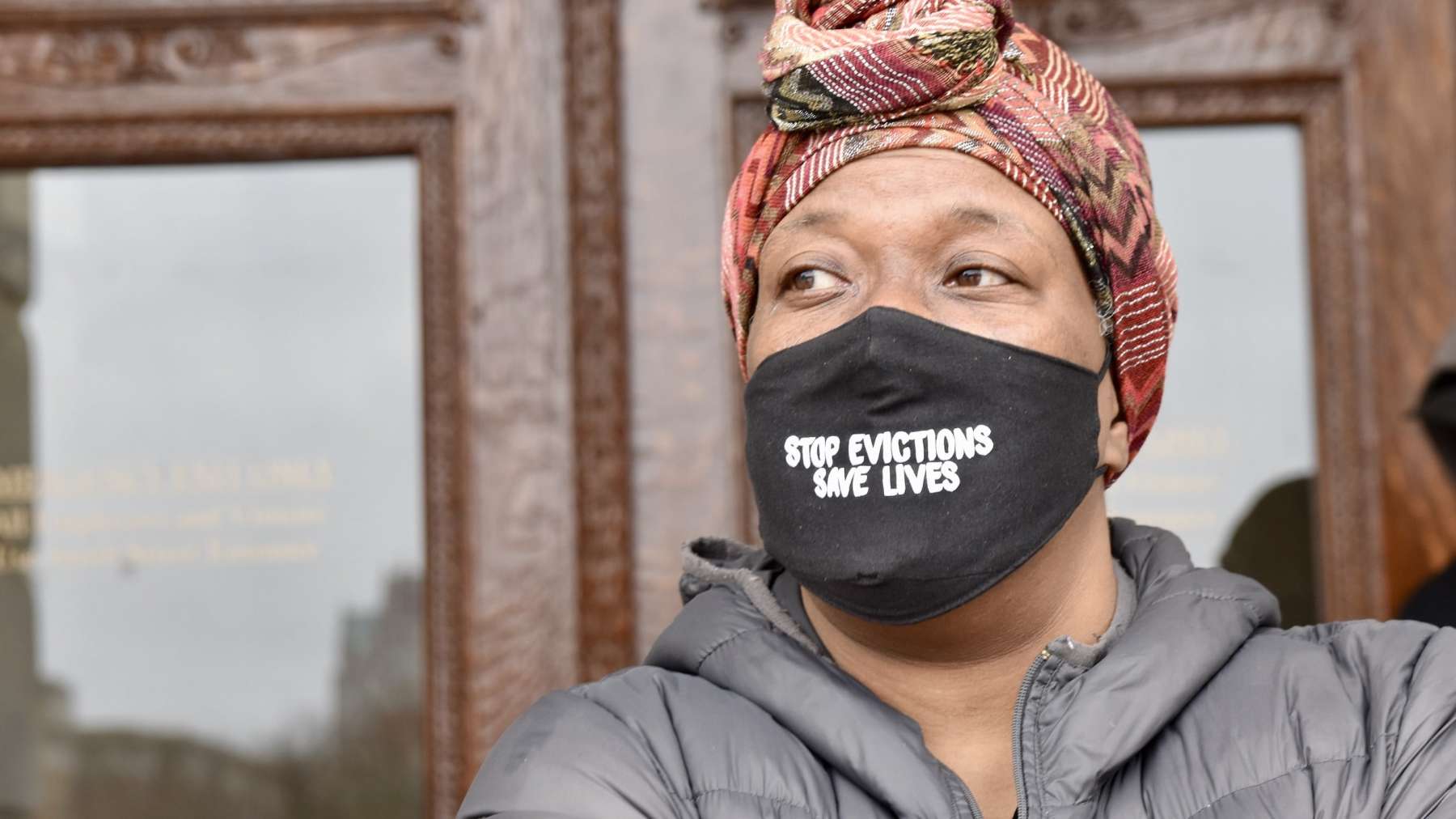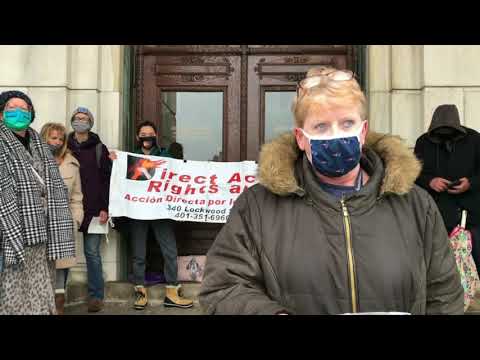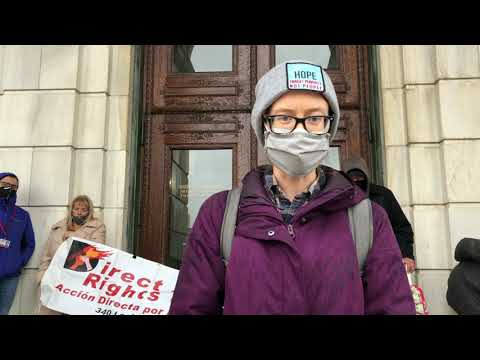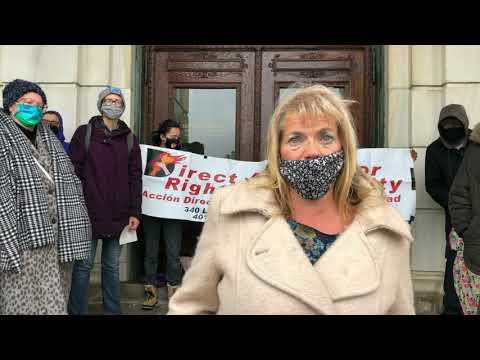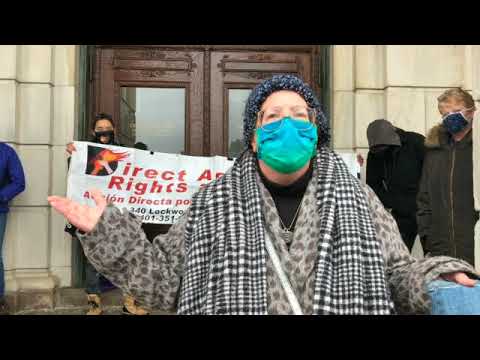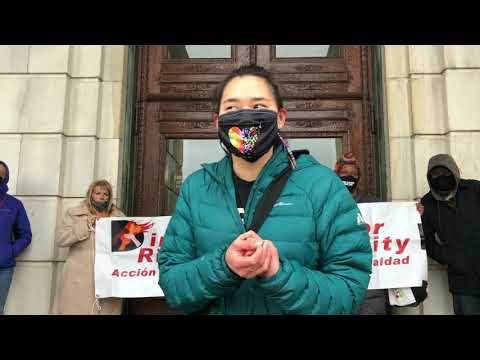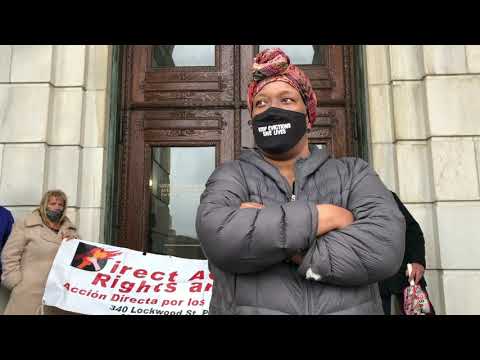Advocates demand a safe parking lot for those staying in vehicles
Despite repeated asks that the state designate a safe parking lot for those staying in vehicles to use, no action has been taken. This has caused those sleeping in cars, vans, and RVs to continue to be ticketed and towed. When this happens, people simultaneously lose their belongings, shelter, and transportation. It is often prohibitively expensive to retrieve vehicles from tow lots, which makes the loss permanent.
March 18, 2021, 7:19 pm
By Steve Ahlquist
According to the state’s Homeless Management Information System, 267 people were sleeping outside over the last two weeks, many of them living in their vehicles. This is in addition to 259 of people currently sheltered in the state’s temporary hotel projects, who may again become street homeless when this funding ends.
As Barbara Freitas, director of the Rhode Island Homeless Advocacy Project, stated, “Year after year, advocates fight this seemingly losing battle of homelesness. This past year, we have seen an outrageous number of homeless in our shelters and on the streets. Now we have families living in their vehicles. This is unacceptable. We need to do something now! We cannot wait another minute longer.”
Despite repeated asks that the state designate a safe parking lot for those staying in vehicles to use, no action has been taken. This has caused those sleeping in cars, vans, and RVs to continue to be ticketed and towed. When this happens, people simultaneously lose their belongings, shelter, and transportation. It is often prohibitively expensive to retrieve vehicles from tow lots, which makes the loss permanent.
“Every day our outreach team talks with people staying in cars, and what they ask us for help with shouldn’t be so hard to provide,” said Megan Smith, a member of the House of Hope CDC. “They want a safe place to park. They want housing. It’s deeply unjust that instead of providing these resources, we criminalize people and tow their vehicles – their lifelines – and blame them for their own situations.”
Staying in a vehicle should not be someone’s best option. We believe that housing is a human right and everyone should have access to safe, permanent, affordable housing in their communities of choice. However, this is not the reality in our state (or nation) today, and homelessness is likely to get worse rather than better with the impending eviction crisis. Thus, people need safe interim options. People stay in vehicles because they cannot access housing and shelter, and because what resources do exist are not an appropriate fit for them: couples often cannot stay together in shelter, and people cannot bring their animals. In this way, staying in vehicles allows families to stay intact. Shelters also do not provide privacy, and many people’s trauma histories and health concerns make this a triggering and unsafe situation. This has only been heightened by the COVID-19 pandemic.
Natalie Kendrick lives with her husband in an RV. “Just recently we got evicted from the property we were on. We’ve been going from parking lot to parking lot,” said Kendrick. Right now, House of Hope CDC has the couple in a hotel, but this is far from a permanent solution.
A designated parking lot increases safety by allowing those in vehicles to stay in their communities and provide mutual support. When people are isolated, they are frequently the victims of crime and their vehicles the target of vandalism. Not having to worry if one’s vehicle will still be there when one returns to it will also allow people to do what they need to do to work toward their goals: look for work, connect with health care and services, spend time with family. All of this helps people move toward housing.
“I was illegally evicted from a house,” said Virginia Gibson, “because there were supposed to be no evictions [during the pandemic.] I’ve been living in my van ever since.”
Those staying in vehicles have identified the following as the most important characteristics of a safe parking lot:
- Close to Providence and near a bus line
- Vehicles do not have to leave during the day
- Written agreement with the property owner
- Pet/animal friendly
- Available bathrooms or porta-potties
- Dumpster or trash barrels on-site
- Access to electricity and potable water
We respect the capacity of people to manage their own lives when they have access to the resources needed to do so. House of Hope CDC’s outreach team is already in regular contact with many of the individuals who would be utilizing a safe parking lot, and will continue to provide support. We invite collaboration with a range of other community and organizational partners based on the identified needs and requests of those using the lot.
“There’s 1500 people, per night, that experience homelessness,” said Kathryn Morris, an outreach worker. “That’s just in Rhode Island.” And that’s just those we know of.
In summary, advocates – foremost among them people who are themselves experiencing homelessness and staying in vehicles – came to the State House to demand a designated parking lot with amenities to provide a safe and dignified interim resource for people staying in vehicles. We recognize that housing is what ends homelessness, and so also reiterate demands for more investment in housing that is affordable for very low income people. If you have a property on which vehicles could park, please contact House of Hope. Donations of gift cards (particularly for gas, food, and basic needs items) and monetary donations to help repair vehicles and get them out of tow lots are also warmly welcomed. These can be sent care of House of Hope CDC.
“It is time for state legislation, it is time for the city, Dan Mckee – It is time to band together to protect the citizens during this pandemic,” said Terri Wright, from Direct Action for Rights and Equality (DARE). “The need for a parking lot – a safe place to park at night for folks who don’t have homes – to sleep in their cars – – It’s really sad that we are standing here. There’s so many parking lots that sit empty at night…”



